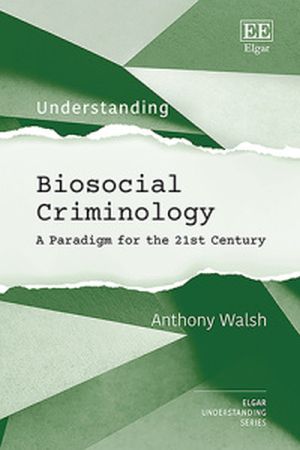We will be closed from 5pm Thursday 17th April for the Easter Bank Holidays, re-opening at 8.30am on Tuesday 22nd April. Any orders placed during this period will be processed when we re-open.

Informative and insightful, this prescient book argues that biosocial criminology is a powerful paradigm for understanding criminal behavior, crucially outlining its nature via nurture perspective, as opposed to nature versus nurture.
Examining the core correlations between criminal activity and the identifying characteristics of age, sex, race, intelligence and poverty, Anthony Walsh contends that the biosocial perspective is criminology’s future as it encompasses all relevant factors that influence human behavior, from neurons to neighborhoods. Walsh draws from evolutionary biology, genetics, and neurobiology to emphasize that in order to understand the traits and behaviors of any species, it is necessary to inquire about their function, phylogeny, ontogeny, and causation. Offering a unique perspective, Understanding Biosocial Criminology concludes that the environment is deeply involved in behavior, yet also insists that humans are not simply reactors to externalities.
Uniting the biological and social sciences, this book will be an interesting read for academics, students and researchers in criminology, social psychology, and sociology and sociological theory. Its insight into criminal behavior will also be of interest to professionals and practitioners working in the legal field.